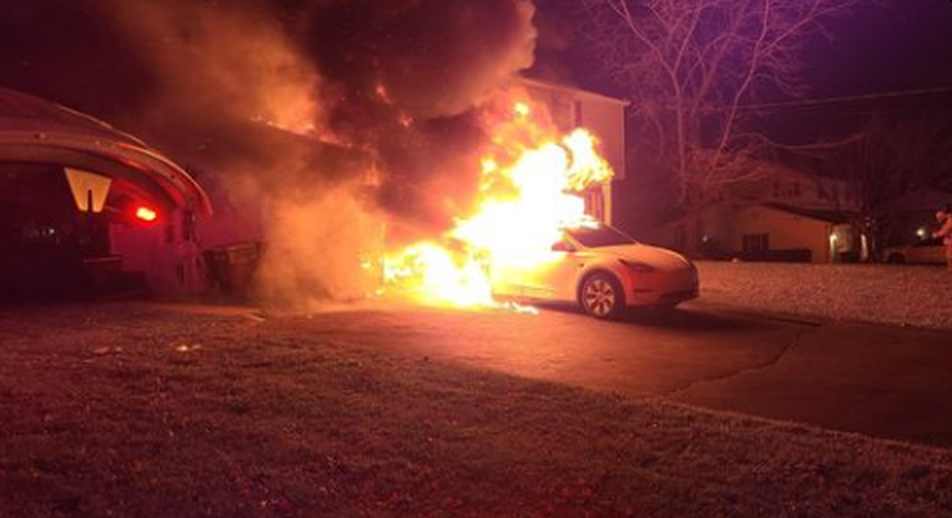Tech Startups
Happy Thanksgiving Holiday. With news of the new covid variant sucking the oxygen out of the 24-hour news cycle, we think you’re better served with a thought-provoking article about what affects us all: Education. Today, there is a lot of debate about the state of America’s education system.
As we all know, education is foundational to the fabric of any society. An educated populace is a productive populace; capable of independent thinking and making logical decisions. Today, we now have a generation of kids that can no longer think critically. They aspire to be rich and famous without any major accomplishments. This type of flawed and distorted thinking has also led to the rise in many young kids chasing after quick gains like cryptocurrency and NFTs without having to work hard like their parents before them.
So, how did we get to where we are today? It all began in the later 1960s when the American education system start to decline. As Linda Gorman, a senior fellow at the Independence Institute, noted, student scores on a variety of achievement tests dropped sharply in 1967after it had previously risen every year for fifty years. The decline later continued through 1980. “In the 1980s, economists were puzzled by a decline in the growth of U.S. productivity and later realized that American schools had taken a dramatic turn for the worse,” Gorman wrote.
However, the decline did not happen overnight. Many well-respected scientists and philosophers argued that education is more than what happens within the four walls of a classroom. Unfortunately, for decades traditional education has focused on teaching, not learning.” It incorrectly assumes that for every ounce of teaching there is an ounce of learning by those who are taught.” So, if the real purpose of education is learning, then education should cater to the needs of the learner whether those needs coincide with the norm or not.
As we all know, Albert Einstein was arguably one of the most intelligent people ever. Known worldwide for his theory of relativity, one of the things many people probably didn’t know about him was his views on traditional education. In 1936, Einstein composed an essay in German that was published in English in 1956 under the title “On Education.”
The essay was part of an address by Albert Einstein to the State University of New York at Albany, on the occasion of the celebration of the tercentenary of higher education in America, October 15, 1936. Einstein started out by saying, “Thus, there is nothing else left for me but to speak about such questions as, independently of space and time, always have been and will be connected with educational matters. In this attempt I cannot lay any claim to being an authority, especially as intelligent and well-meaning men of all times have dealt with educational problems and have certainly repeatedly expressed their view clearly about these matters. From what source shall I, as a partial layman in the realm of pedagogy, derive courage to expound opinions with no foundations except personal experience and personal conviction? If it were really a scientific matter, one would probably be tempted to silence by such considerations.”
He went on to say, “However, with the affairs of active human beings it is different. Here, knowledge of truth alone does not suffice; on the contrary this knowledge must continually be renewed by ceaseless effort, if it is not be lost. It resembles a statue of marble which stands in the desert and is continually threatened with burial by the shifting sand. The hands of service must ever be at work, in order that the marble continue lastingly to shine in the sun. To these serving hands mine shall also belong.”
He then expressed his view of the education of his days saying, “The school has always been the most important means of transferring the wealth of tradition from one generation to the next. This applies today in an even higher
degree than in former times, for through modern development of the economic life, the family as bearer of tradition and education has been weakened. The continuance and health of human society is therefore in a still higher degree dependent on the school than formerly.”
Echoing the view that knowledge is dead and school is alive, Einstein disagreed that school should be used as an “instrument of transferring a certain maximum quantity of knowledge to the growing generation.” Einstein said that’s not the right way. Instead, Einstein said the goal “must be the training of independently acting and thinking individuals, who, however, see in the service of the community their highest life problem.”
“Sometimes one sees in the school simply the instrument for transferring a certain maximum quantity of knowledge to the growing generation. But that’s not right. Knowledge is dead; the school, however, serves the living. It should develop in the young individuals those qualities and capabilities which are of value for the welfare of the Commonwealth. But that does not mean that individuality should be destroyed and the individual becomes a mere tool of the community, like a bee or an ant. A community of standardized individuals without personal originality and personal aims would be a poor community with no scope for development. On the contrary, the aim must be the training of independently acting and thinking individuals, who, however, see in the service of the community their highest life problem.”
He then concluded with this idea of what he called the “wit.” Einstein said that “the wit was not wrong who defined education in this way: “Education is that which remains, if one has forgotten everything he learned in school.”
He added, “For this reason I am not at all trying to take sides in the struggle between the followers of the total philologic-historical education and the education more devoted to natural science.” You can read the rest of the essay in the PDF document below.
Meanwhile, Einstein was not alone. In March 1974 Isaac Asimov published “How to Write 148 Books Without Really Trying” in the journal “Chemtech” from the American Chemical Society. In 1975 the essay was updated and became “How to Write 160 Books Without Really Trying” which appeared in Asimov’s collection “Science Past, Science Future.” In one of his writings, he said, “And self-education is, I firmly believe, the only kind of education there is.” Asimov went on to say that “the only function of a school is to make self-education easier; failing that, it does nothing.”
In closing, below is a related video that examines how public schools and the mainstream media have contributed to the growth of a passive citizenry, thus paving the way for the rise of tyranny. The video also looks at the role anti-authoritarians play in a free and flourishing society. Enjoy!



Connect with us on our socials: